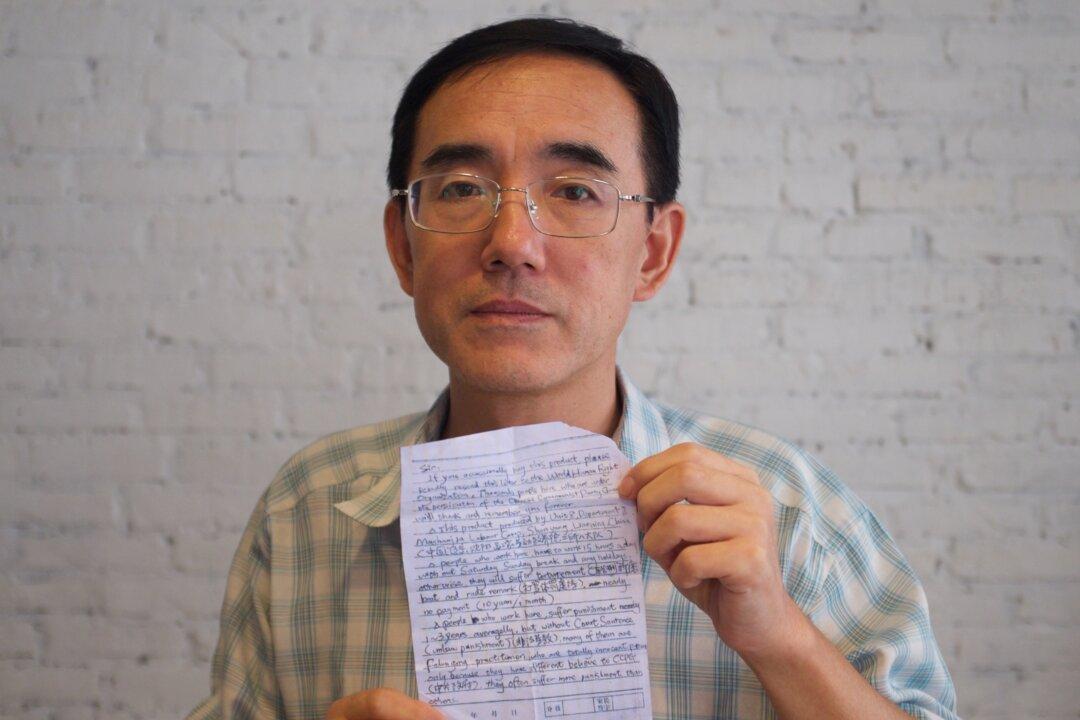Commentary
In 2012, a woman in Oregon opened a box of Halloween decorations she purchased at Kmart. Tucked inside was a scrap of paper, bearing a desperate plea scrawled in broken English: “If you occasionally buy this product, please kindly resend this letter to the World Human Rights Organization.” It went on to describe long hours, beatings, and a brutal Chinese labor camp. The writer, Sun Yi, an engineer and husband, had been jailed for practicing Falun Gong, a spiritual discipline outlawed by the Chinese Communist Party.

